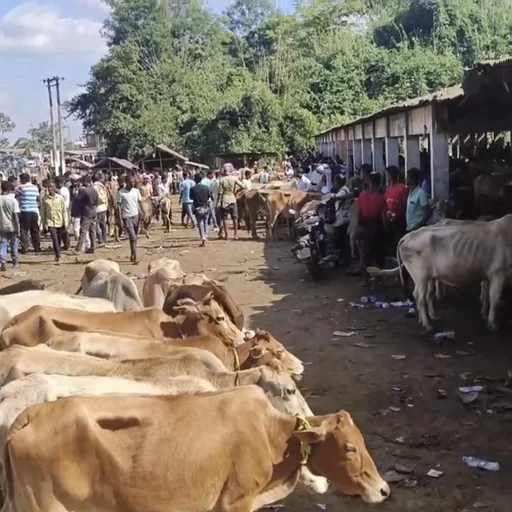Families in Assam who depend on raising and selling cattle are facing difficulties due to recent policies focused on cow slaughter and beef bans. For generations, many families have relied on livestock for their livelihood. In the Golaghat district, communities like the Mising people have traditionally herded cattle in river areas like Bamun Chapori, where there is plenty of grass for grazing. These families depend on selling milk and cattle to support themselves.
However, recent rules aimed at protecting cows are creating challenges. The cattle market in Behora, where farmers often sell their animals, is being impacted. These restrictions are making it harder for families to sell their livestock. As a result, this is causing concern and uncertainty about how they will make a living.
The effects of these new regulations go beyond individual families. They are also impacting the cultural traditions and overall economic activities of the communities in Golaghat. One community member explained that cattle herding has been a way of life for generations, providing income through the sale of milk and animals. Therefore, the new policies are creating a difficult situation for these families who have long depended on cattle herding. The situation showcases the tension between government regulations and the established way of life for these communities.
